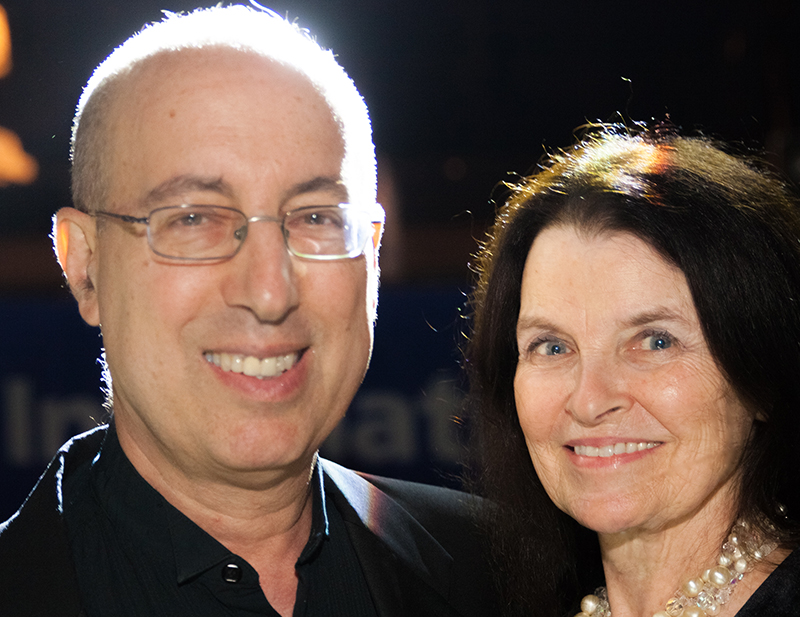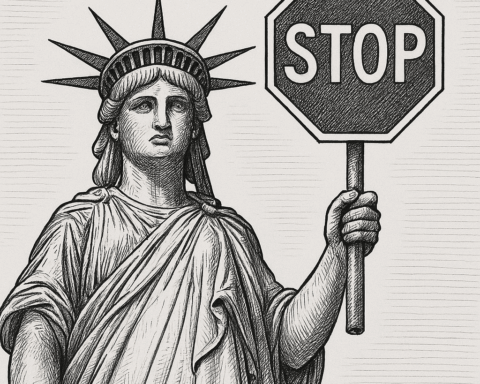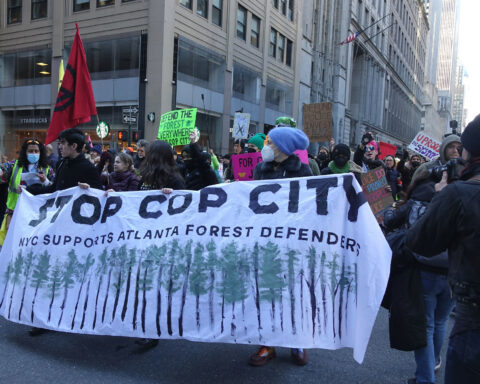A few months ago, a good friend whose political wisdom I respect, stated she just wished “the Squad” (the progressive Democratic congresswomen of color elected in 2018) would shut up. She asked whether their vocal challenges to the conventional Democratic Party leaders and larger political system undermines the need for a unified Democratic Party’s plan to defeat Donald Trump. Their outspoken-ness, the argument my friend made, was it provides the Trump’s campaign strong talking points about the “radical” Democratic Party.
Clearly the ongoing impeachment hearings currently dominate the public political discourse. They immediately transcend issues of what eventually will happen in the November election. I understood her argument: not unifying around a common message meant it would be less likely we would defeat Trump. That the Squad’s message of new Green Deal, of Medicare for All, and other large government programs might feed the radical socialism label Trump repeatedly ties to the Democratic mainstream; that mainstream candidates might be marginalized within the party, with the rhetoric alienating the critical independents and moderate Democrats, and affecting turn-out. These labels together would make it much harder to beat Trump.
Also, I thought first-term representatives in Congress might need to learn the “ropes,” on how to navigate the corridors of power (dominantly run by white men). How insider deals are won and lost; how to make alliances through compromise. Maybe my friend was correct, that at this time, the Squad might need to just “shut up” and let the established political leadership set direction on winning the 2020 election. Maybe they need to avoid giving the Republicans ammunition to reelect Trump, by having radical/socialism labels to paste on the Democratic Party. Maybe the expedient thing to do is for the Squad to just step back into the background to help elect a Democrat to the Presidency, and just “shut up” for now.
This message troubled me, as I know it is the message so too often given women of color, to “shut up. You don’t know; you don’t understand.” That their voice was only a minority and may be problematic for “retaining power.” History reveals “shutting up is all too familiar.” In 1962, the black woman, Fannie Lou Hammer, was fired from her job after she campaigned to encourage African Americans to vote. Two years later, when Hammer testified at the Democratic National Committee in support of black voter registration, President Lyndon Johnson quickly held an impromptu news conference, making it impossible for national television networks to cover her testimony live.
When my friend mentioned this criticism of the Squad, I had an immediate visceral reaction. This led me to reflect on the Squad’s outspokenness for those not normally heard within the halls of power. Reading history, I realize that, for far too long, women of color have been silenced by the forces of white supremacy and patriarchy. I feel it’s important to recognize that women of color deserve to have their voices heard, and that those in power, such as my own white privilege, need to deeply listen to them. But trying to deconstruct my reaction, I tried to balance winning the 2020 presidential election with hearing these refreshing new progressive and unknown voices.
When the electoral focus is only on electability, early nominating contests and differences in how the media treat candidates of color compared with white candidates are making things even more difficult. Presidential candidate Kamala Harris told an Iowa crowd “Oh, …Maybe it’s not her turn, maybe it’s not her time, maybe it might be too hard. We got to play it safe…Maybe we can’t take that bet.” Harris, as a woman of color, was a risk. She dropped out as a Democratic Presidential candidate on December 3, 2019.
Or in NYT Sunday Review of October 27 2019, Lindy West shares her story of her non-white stepdaughter’s activism speaking out publicly, “we are tired of the fact that we still have to fight, for all that the white man gets to call his unalienable right…so we as a people, will keep fighting, whether it’s peaceful or scary, until we reach justice by whatever means necessary.”
Silencing the public voices of the Squad also silences this young woman’s voice. As other people of color who have always been told, “just shut up.” Just wait. When, finally, is the right time to speak up? When is it too long to wait, until power dynamics shift without the voices of color?
Michael Bedford
North Adams, Mass.

















